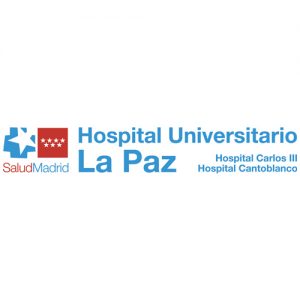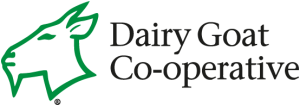![]()
Goat Infant Formula Feeding and Eczema
Atopic dermatitis (also known as eczema) affects people of all ages but is especially concerning in infants. An Australian study found possible differences in eczema (atopic dermatitis) rates during the first year between infants fed whole goat milk formula and those fed cow milk formula. The sources of protein and fat in the formulas differ, but both support infant growth and nutrition equally1-2.
Objective
The GIraFFE study compares whether whole goat milk formula and standard cow milk infant formula have different effects on the development of atopic dermatitis and other related allergic diseases (e.g., asthma or hay fever), by analysing a large infant cohort. The infant formulas used in the GIraFFE study comply with European regulations. They are manufactured in New Zealand using milk collected from grass-fed goats and cows in the local area. Both formulas are safe, well-tolerated, and have been shown to ensure normal growth and development in infants.
About the GIraFFE study
The study is led by Professor Berthold Koletzko and his research team from the University of Munich, in close cooperation with the principal investigators from ten collaborating Research Centers in Poland and Spain. The health and well-being of the children in the study are of paramount importance to the investigators and are closely monitored.
To protect breastfeeding, the GIraFFE study only contacted parents who had already decided to or were already feeding their babies infant formula. If parents agreed to participate, they visited a study centre with their child, and the child was randomly assigned to receive either standard cow milk formula or whole goat milk formula until the age of 12 months. A fascinating aspect of the GIraFFE study is that the participating children are followed until age 5, which enables investigation of longer-term effects on allergic disease progression and (neurological/cognitive) development.
The study formulas were made in the New Zealand factory and are available commercially. The safety and tolerability of whole goat milk formula were demonstrated in two clinical studies1-2. A positive opinion from the European Food Safety Authority (EFSA, 2012) confirmed that whole goat milk formula is safe and nutritionally adequate for infants, provided it meets the EU’s regulations.
Over 2,100 children are participating in the GIraFFE Study. All the children reached 12 months of age in August 2024 and 24 months in August 2025. At the end of 2025, the first children will have completed the study when they are 5 years old. The parents have told us that their experience in the study has been very positive. Many would like their new children to be involved; unfortunately, the enrolment period has already ended.
Many parents are curious about the type of study formula their child has received. However, to prevent any potential influence on study results, parents and study staff cannot know which formula a child has received until all the data is collected and analysed. This is a normal procedure in high-quality clinical research.
There are many interesting aspects of the study, and we will add updates as the results are published. It has been possible to include measures that provide information about other aspects of allergies and child development, which will give new insights for doctors.
We’re deeply grateful to the infants and parents currently involved in this study. Their ongoing commitment is helping shape better health outcomes for future generations.
The study has been registered in clinicaltrials.gov as NCT04599946.
Updates
In October 2024, Professor B. Koletzko presented lessons learned from the study team’s experience with implementing a large multicentre formula-feeding study at the European Academy of Paediatric Societies (EAPS 2024, Vienna). Participation in the study has been strong, with a high number of children continuing. This is due to our loyal study parents and children, and their important contribution – thank you!
In April 2023, the GIraFFE Study design was published to allow scientists and experts to understand what the study is about3.
Collaborative teams of the GIraFFE Study
Research Management Team in Germany:
Prof Berthold Koletzko, Dr von Hauner Children’s Hospital, LMU University Hospital, Munich.
Collaborating Research Centres in Poland:
- Olsztyn: Prof Elzbieta Jarocka-Cyrta, Children’s Hospital
- Poznań: Prof Jaroslaw Walkowiak, Karol Jonscher Clinical Hospital, Poznań University of Medical Sciences
- Rzeszów: Prof Artur Mazur, University of Rzeszów
- Warsaw: Prof Dariusz Gruszfeld and Prof Janusz Książyk, Children’s Memorial Health Institute
Collaborating Research Centres in Spain:
- Almeria: Dr Rafael Galera, Torrecárdenas University Hospital
- Granada: Prof Cristina Campoy, EURISTIKOS Excellence Centre for Paediatric Research
- Madrid: Prof Miguel Sáenz de Pipaón, Hospital Universitario La Paz
- Tarragona and Reus: Prof Ricardo Closa Monasterolo and Prof Joaquin Escribano Subías, Hospital Universitari Joan XXIII and Hospital Universitari Sant Joan, IISPV/URV
- Valencia: Prof Cecilia Martínez Costa, Hospital Clínico Universitario de Valencia, INCLIVA Health Research Institute
- Zaragoza: Prof Gerardo Rodríguez, Zaragoza University
Funding:
The GIraFFE StudyTM is co-funded by Dairy Goat Co-operative and the New Zealand Ministry for Primary Industries as part of the Caprine Innovations NZ Programme under the Sustainable Food & Fibre Futures partnership.
Data protection: The Ethics Committees of the Research and Management team and of all the collaborating centers have reviewed and approved the procedures to protect the personal data of the participants in the GIraFFE Study, as well as the correct compliance with the General Data Protection Regulation (GDPR). Study participants will receive detailed information on data protection individually.
References:
- Grant, C., et al. (2005). «Randomized, double‐blind comparison of growth in infants receiving goat milk formula versus cow milk infant formula.» Journal of Paediatrics and Child Health 41(11): 564-568.
- Zhou, et al. (2014). «Nutritional adequacy of goat milk infant formulas for term infants: a double-blind randomised controlled trial.» British Journal of Nutrition 111: 1641-1651.
- Ferry, et al. (2023). «Effects of infant feeding with goat milk formula or cow milk formula on atopic dermatitis: protocol of the randomised controlled Goat Infant Formula Feeding and Eczema (GIraFFE) trial.» BMJ open, 13(4), e070533.





















